«BINARY LECTURE» AS AN ACTIVE TRAINING METHOD
October 24, 2023 at the Department of Pharmacognosy, an open binary lecture held for 3rd-year students in the educational program 6B10106 “Pharmacy” - B-PKAB-01-21; B-PKAB-02-21 groups, on the discipline “Pharmacognosy-1” on the topic “Medicinal plants and raw materials containing essential oils”.
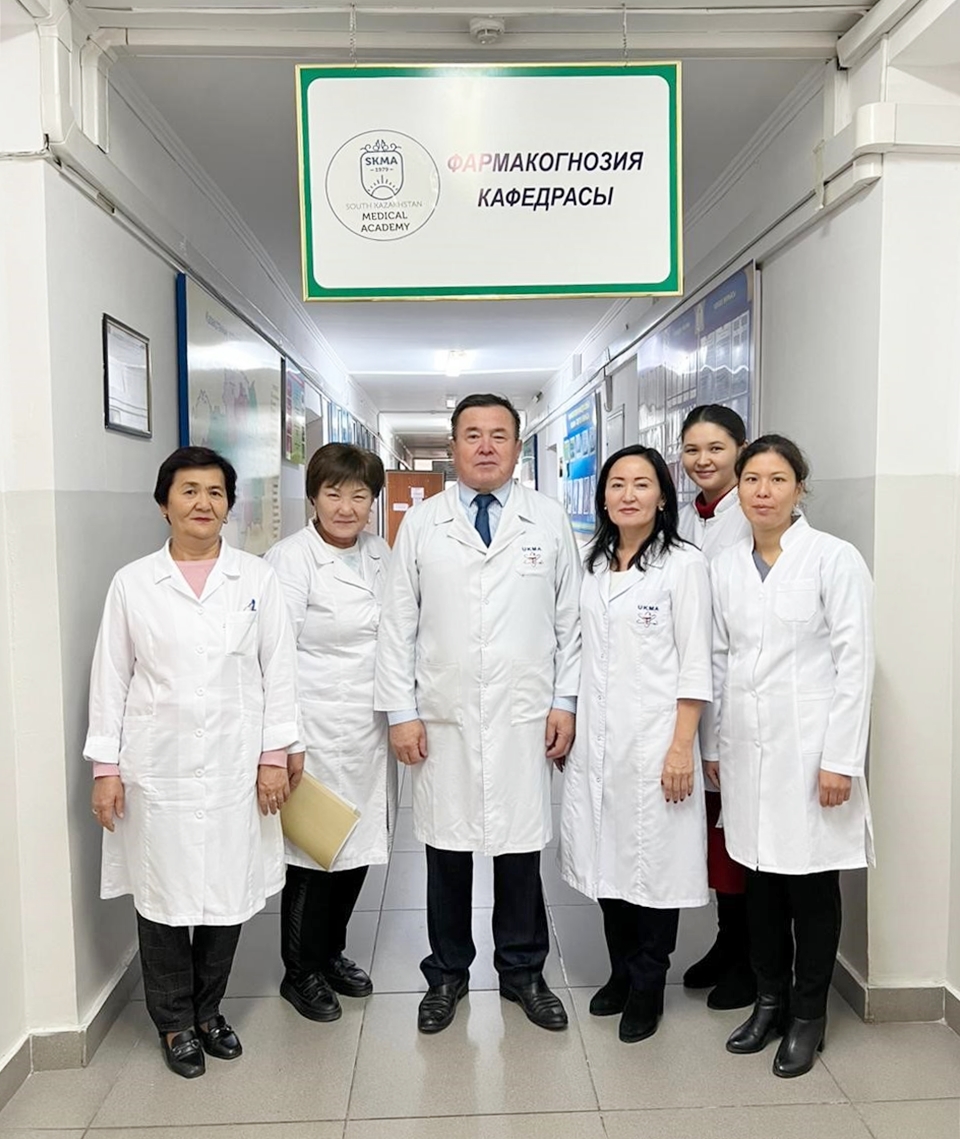
The lecture was given by acting. Professor Orynbassarova K.K. with the participation of co-lecturer Candidate of Biological Sciences, Associate Professor of the Department of Biology and Geography of the M. Auezov South Kazakhstan University - Ibragimov T.S.
The main goal of a binary lecture is to actively involve students in the thinking process to develop their ability to express their point of view on a problem. The binary lecture, as one of the active methods, aimed at interdisciplinary integration of basic and specialized disciplines, as well as elements of problem-based learning. At the same time, the recommended type of lecture combines the receipt of information simultaneously in several disciplines, the mastery of which creates the opportunity for students to form a holistic picture of their future multifaceted, interconnected and interdependent professional activities.
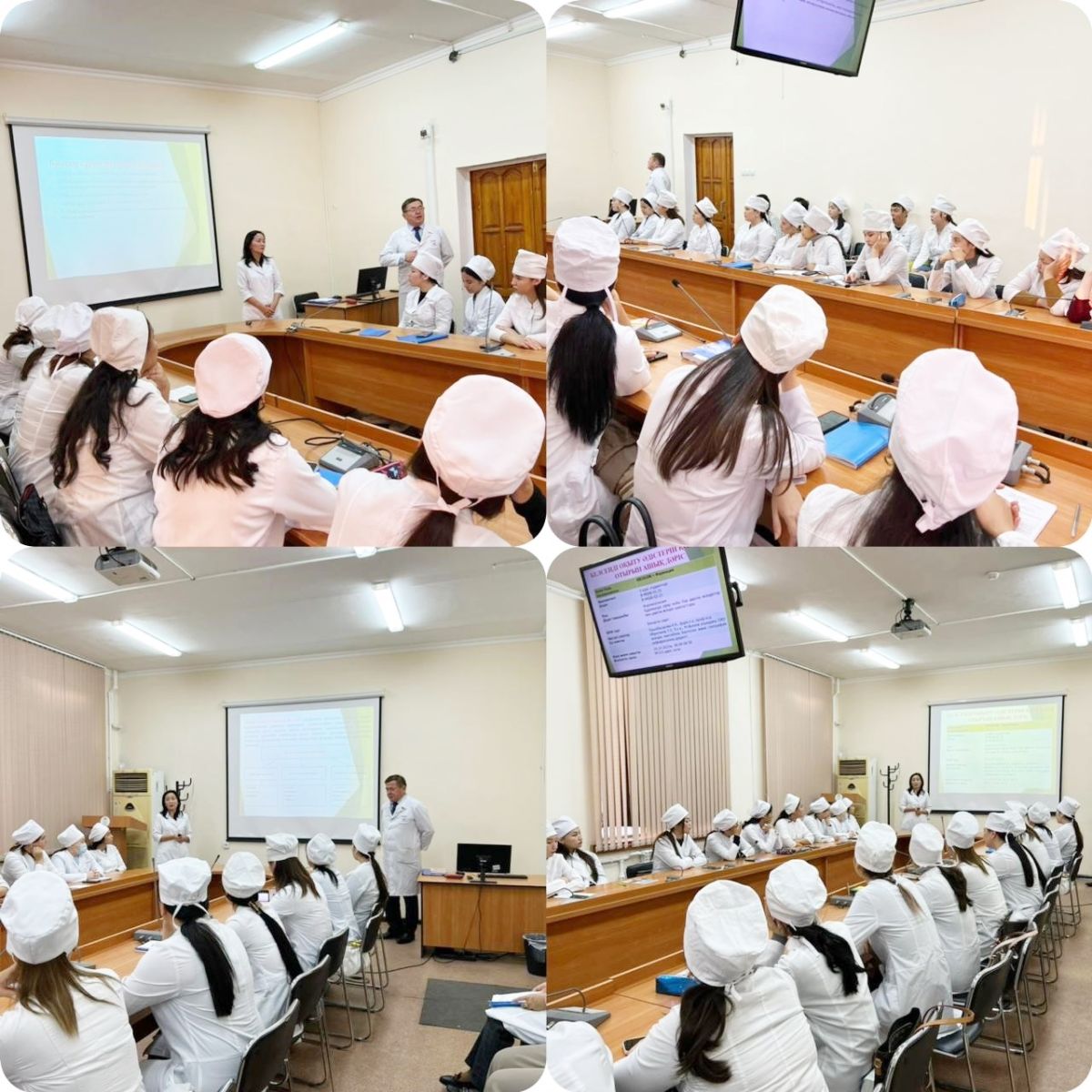
Co-lecturer Associate Professor Ibragimov T.S. described in detail the distribution in the plant world, the role of essential oils in the life of plants, the localization of essential oils in medicinal plant raw materials (MPS), the physiological significance of essential oils for plants, the accumulation of essential oils in medicinal plant raw materials and their environmental significance in the national economy. The lecturer focused on the macroscopic, organoleptic and microscopic characteristics of medicinal plant raw materials, medical, biological and national economic significance of essential oils and essential oil raw materials.
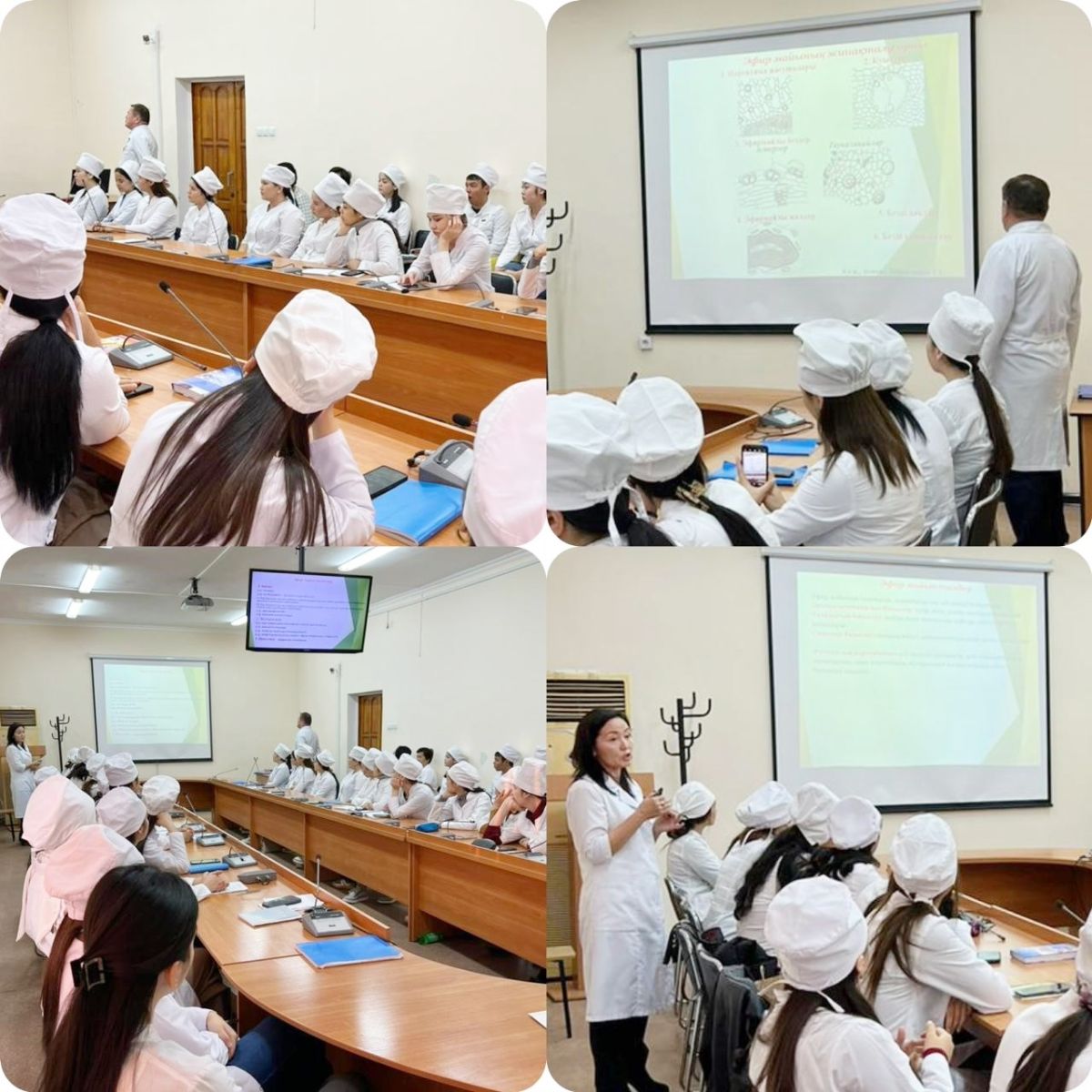
Questions of interest from students about the physical and chemical properties of essential oils, methods for obtaining essential oils, identification methods (physical, physical-chemical), standardization of essential oils (external examination, determination of the authenticity of the essential oil, determination of the good quality of the essential oil, determination of possible impurities in the essential oil , qualitative reactions to essential oils, quantitative determination of components in essential oil), determination of essential oil content using the methods of Ginsberg and Clevenger were explained by the main lecturer Orynbassarova K.K.
The lecturer focused on the features of collecting, drying, packaging and storing raw materials containing essential oils. Assessment of the quality of essential oil raw materials. Spectrum of biological activity of essential oils, preparations.
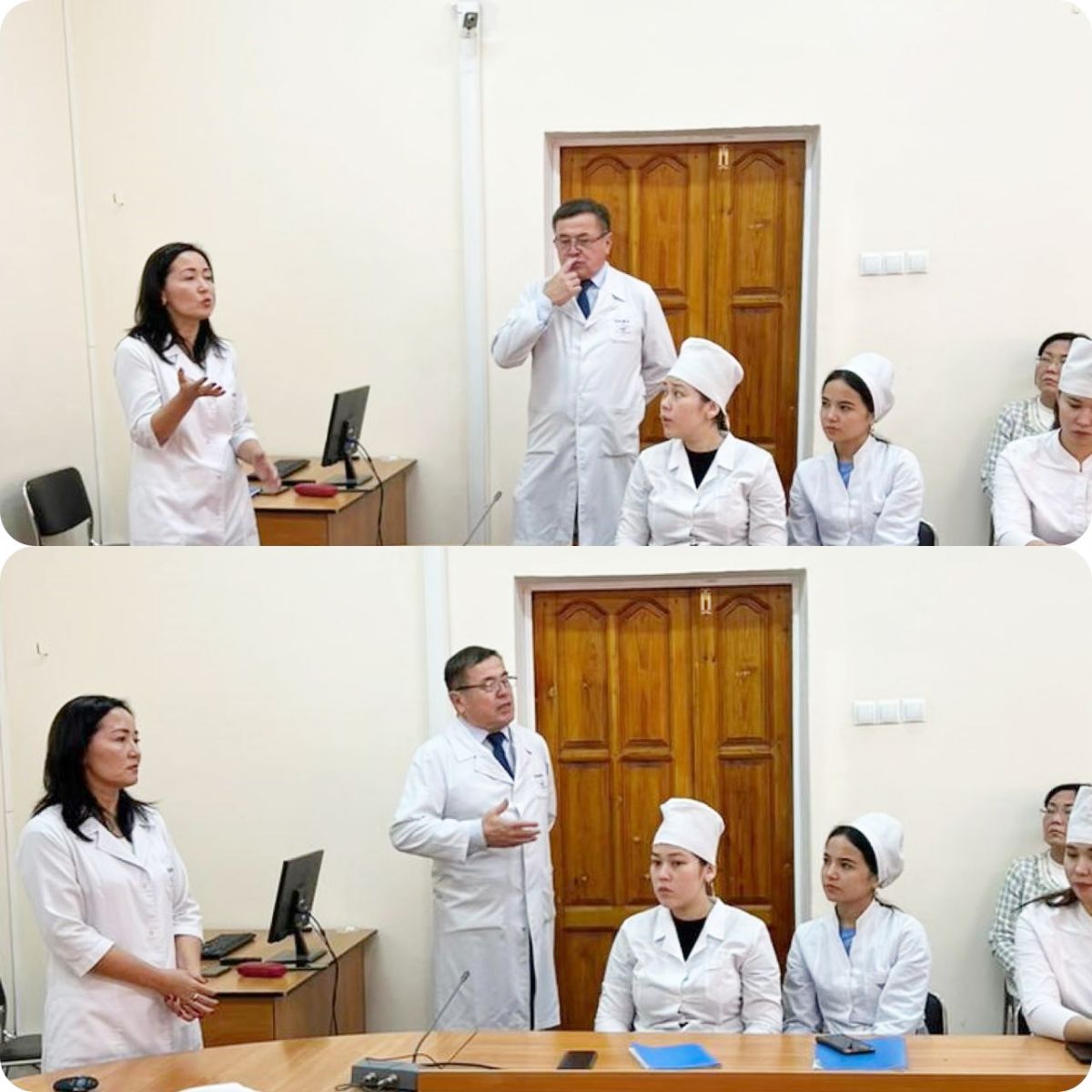
To consolidate new knowledge and update existing knowledge, feedback was established by asking control questions. Students actively participated, answering the questions posed, which indicated a complete understanding of the topic material.
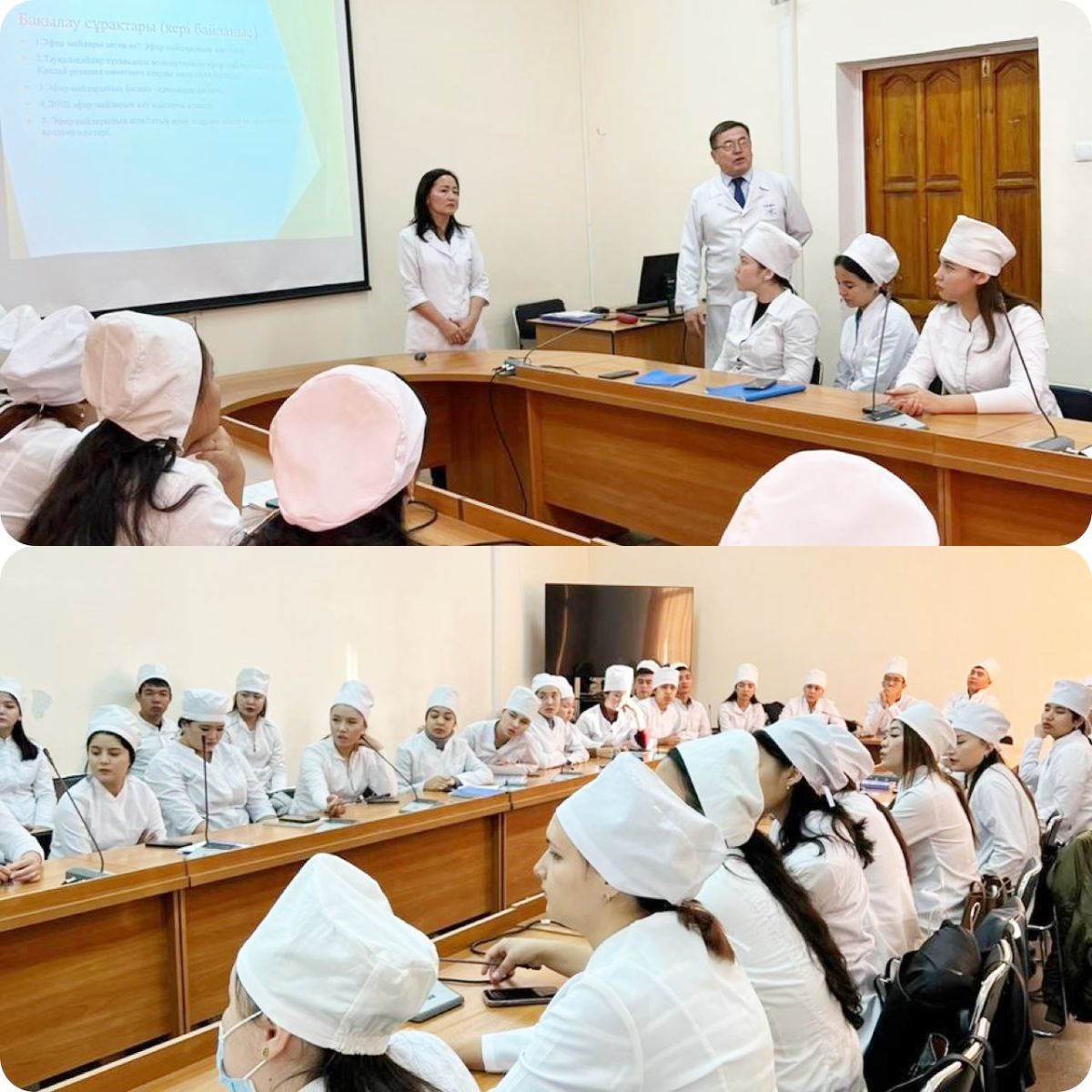
During the lecture, in a fairly short period of time, it was possible to touch on all aspects of the topic being studied, moreover, each student was able to find answers to questions that interested him. Thanks to the professionalism of the lecturers, it was possible to compare theory and practice in real time.
After the lecture, students and teachers shared their impressions. The students thanked the lecturers for such an interesting and multifaceted lecture.
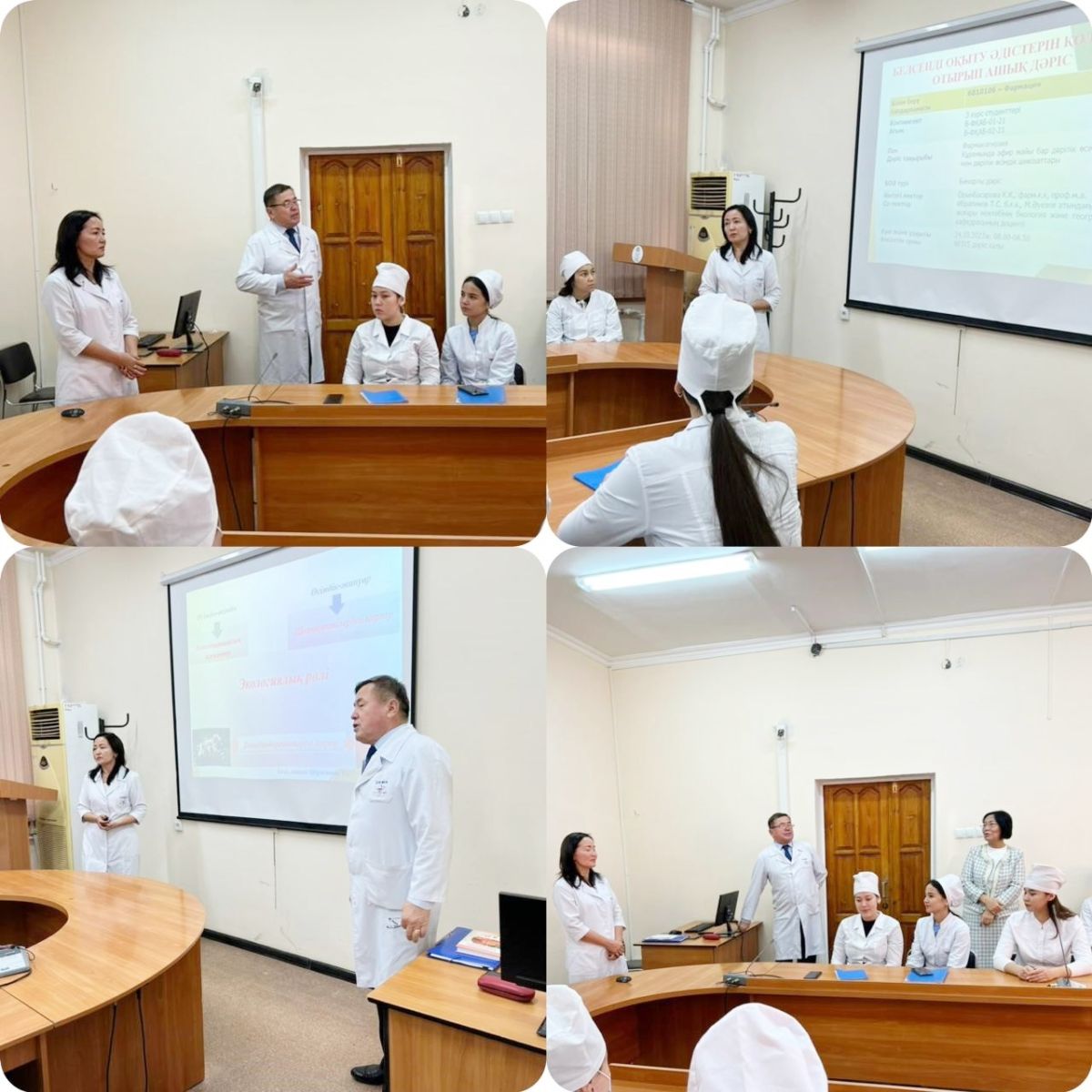
Thus, a binary lecture with elements of interdisciplinary integration made it possible to achieve effectiveness in the formation of professional competencies of a pharmacist. Such classes allow the student, by repeatedly applying knowledge in each discipline studied or studied outside the framework of one discipline, in new conditions, to develop the ability to apply knowledge in professional activities.
 679 views
679 views
